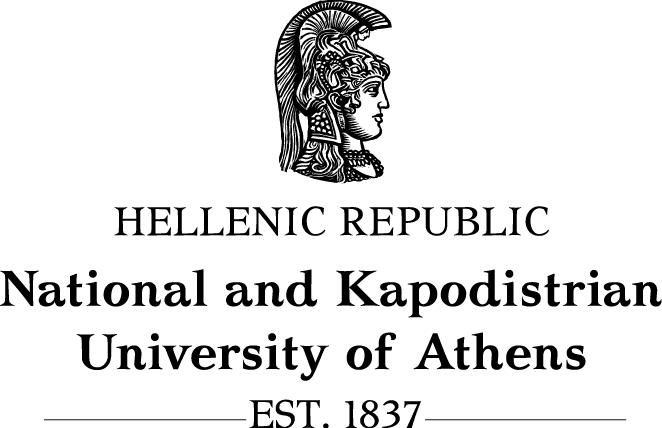
Neurons and Machines:
Philosophy, Ethics, Policies, and the Law
Credit: Alarmy
Programme:
Day 1 – 27.11.2025
- 10:00-11:00: Plenary 1 – Emma Gordon – Moral Expertise and Socratic AI
- 11:00-11:30: Coffee break
- 11:30-13:00: Parallel Sessions 1 & 2
Conference Session 1: Neural Frontiers: Emotions, Minds, and Machines
Leonidas Chiotis: Brain Computer Interfaces and Moral enhancement
Ilaria Fornacciari: Neural networks, pattern recognition and emotional data
Rosa E. Martín-Peña / Sara Méndez Afonso / Maria Roselló Matoses: Constructing Minds: How AI Governs Emotion Through Neural Signals
Conference Session 2: Rethinking Responsibility: Legal and Moral Agency in the Age of AI
Tomasz Żuradzki: Precautionary Approach to the Moral and Legal Status of AI
Diana Mocanu: Artificial legal agency – conceptually engineering legal agency to deal with artificial intelligence
Tara Toth: Cyberstalking: A Phenomenological Approach to Overcoming Legal Limitations
- 13:00-15:00: Lunch Break
- 15:00-16:30: Parallel Sessions 3 & 4
Conference Session 3: Constructing Selves: AI, Subjectivity, and Social Relations
Eleni Tsatsaroni: Always on your side”: Replika and the Affective Construction of Subjectivity
Suzie Gray: Understanding Temporal Relations in the Ludopticon and Beyond: Identity in the Era of Neuroperformativity
Georgia Gouga: AI and the Social Subject: Exploring the Formation of a Social Relation
Conference Session 4: Artificial Intelligence and the Transformation of Rationality
Megan Smith: Brain-computer interfaces and the intention-behavior gap
Giorgio Pedrazzi: From Cogito to Code: Replicating the Mind in the Age of AI
Tong Wu: Accelerating the Educational Crisis: what kind of rationality is valued by AI neurotechnology?
- 16:30-17:00: Coffee Break
- 17:00-18:30: Parallel Sessions 5 & 6
Conference Session 5: Feminist Frontiers: AI, Gender and the Brain
Puja Raj: The Maternal Mind in the Machine: Feminist Ethics and AI-Gestational Models
Lukas Schwengerer: On the Dangers of Tool-Assisted Self-Knowledge and White Ignorance
Vedat Menderes Özçiftci / Müge Demir / Nüket Örnek Büken: Neurofeminism and Gender in the 21st Century: Ethical Issues in Brain Research and the Reconstruction of Gender Norms
Conference Session 6: Law and Ethics in the Age of Neurotechnology
Eleni Rethymniotaki: Assessing the debate about the challenges of ethical and legal regulation of neuroscientific research, diagnosis or therapy and state/market emerging neurotechnology
Anastasia Avramenko: Shopping for a New Set of Genes: Legal and Ethical Challenges in the Age of Genomic Innovation
Kelly Amal Dhru: Neurotechnology-Mediated Actions’ and Legal Capacity
- 18:30-19:30: Plenary 2 – Adam Carter – Agentic AI and Action: How to Perform a Non-Basic Action Through AI
Day 2 – 28.11.2025
- 10:00-11:00: Plenary 3 – Pavlos Sourlas – The Limits of AI-Assisted Practical Decisions: The Case of Legal Reasoning
- 11:00-11:30: Coffee Break
- 11:30-13:00: Parallel Sessions 7 & 8
Conference Session 7: Ontological, Political and Ethical Critiques of AI
Dimitri Kladiskakis: Owning the Singularity: Myth, Fetishism and the Political Economy of the AI Age.
Philippos Papayannopoulos: More data won’t fix it! Ethical and Societal Risks from Ground Truths in AI (and the Need for a Wider Interdisciplinary Perspective)
Mona Hedayati: Prototyping Alignment: Situated Response Through Artistic Practice
Conference Session 8: Virtue, Integrity and Co-Action in the Age of Neurotechnologies (online)
Guido Cassinadri: A philosophical characterization of the right to self-integrity
Tristan Baujault Borresen: Mindreading, Mental Privacy and the Informational Symmetry Fallacy
Juan Poyatos: Virtue Epistemology: Meritocracy and Inequality in Cognitive Technologies
Florian Richter: The Concept of Co-Action in BCIs: Its Roots and Its Place in the Philosophy of Technology
- 13:00-15:00: Lunch Break
- 15:00-16:30: Workshop and Conference Parallel Sessions
Workshop Session 1
Panagiotis Kavouras: The quest for reproducible research results across epistemologies: vision, illusion or political decision?
Vincent C. Müller: The role of value in rational choice
Anastasia Siapka: Research and Innovation in Women’s Health Technology: For Whom and at What Risk?
Conference Session 9: Moral and Legal Frontiers of Neurotechnologies
Jiya Manchanda: Mind the Gap: Neural Consent and the Moral Right to Hesitate
Chloe Loewith: Ethics of Organoid Intelligence (OI)
Giannis Ninos: An Outline of a Genealogy of Self-Organization: From Kant to Artificial Intelligence
- 16:30-17:00: Coffee Break
- 17:00-18:30: Parallel Sessions 10 & 11
Conference Session 10: Cognitive Freedom and Privacy in the Algorithmic Age
Thanos Papoulis: AI-shaped life-worlds: The Algorithmic Gaze and the Erosion of Cognitive Freedom
Tristan Baujault Borrese: Mindreading, Mental Privacy, and the Informational Symmetry Fallacy
Giorgos Sakkas: AI-Filtered Self: An Anthropological Exploration of AI, Embodied Subjectivities and Digital Sexualities
Conference Session 11: Agency Responsibility and Personhood in the Age of AI”
Lotte van Elteren / Anco Peeters: The Ethics of Miscalibrated Minds: Sense of Agency and Responsibility Gaps in Neurotechnological and AI-Augmented Environments
Filippos Stamatiou: The Responsinbility Gap in Explainable AI
Iakovos Georgoudis Pitarokoilis: Extended Personhood and Brain-Computer Interfaces.
- 18:30-19:30: Plenary Session 4 – Anastasia Siapka – AI Can Take My Job—As Long as I Can Keep My Livelihood
Day 3 – 29.11.2025
- 10:00-11:00: Plenary Session 5 – Vincent Müller – Universal AI Ethics: Scope and Method
- 11:00-11:30: Coffee Break
- 11:30 – 13:00: Parallel Sessions 12 & 13
Conference Session 12: Rewiring Politics: AI, Workers and Democratic Struggles in the Digital Age
Natalia Panou: Protecting Workers’ Rights in the Era of Artificial Intelligence and Neurotechnology: The Role of Trade Unions
Thesaya Naydoo: The Silent Ballot: How BCIs Could Rewire Political Behaviour
Alexandros Kioupkiolis: Digitalizing counter-hegemonic politics. For democratic transformations in our times
Conference Session 13: Spontaneity, Sexuality and Responsibility in the Age of AI (online)
Qin Sky Ma: Reimagining Criminal Liability: The Impact of AI and Neurotechnologies on Mens Rea and Actus Reus
Yu Fan: Possibilities and Dilemmas of Female-Oriented Sex Robots: Sexual Needs, Sexual Liberation and Post-Structural Feminisms
Đorđe Lazarević: Artificial Intelligence and the Challenge of Creative Spontaneity
- 13:00-15:00: Lunch break
- 15:00 – 16:30: Workshop and Conference Parallel Sessions
Workshop Session 2:
S. Orestis Palermos: Responsible Use of Generative AI in Research.
J. Adam Carter and Emma Gordon: AI and the Ethics and Epistemology of Scientific Research
Conference Session 14: Living With AI: Ethics, Law and Coexistence
Georgia-Martha Gotsi: Punishment theories and criminal responsibility assessment in the light of brain sciences
Manolis Patiniotis: Thinking with | Living with
Agostino Cera: Nullo intelligere sine vivere (the ‘AI aporia’)
- 16:30-17:30: Plenary Session 6 – Byron Kaldis – Title TBA
- 17:30-18:00: Closing session
Registration: Participation to the conference is free for all, but all participants and contributors are required to register for organisational purposes. Please follow this link to register. The deadline for registering is November 5, 2025.
Confirmed Invited Speakers:
- Vincent C. Müller, A. v. Humboldt Professor, “Philosophy and Ethics of AI”
Director, Centre for Philosophy and AI Research (PAIR), Friedrich-Alexander-University Erlangen-Nürnberg (FAU).- Emma Gordon, Lecturer in Applied Ethics in the Department of Philosophy at the University of Glasgow, Head of Interdisciplinary Research at the COGITO Epistemology Research Centre, and steering commitee member of UofG’s Centre for Neurotechnology
- J. Adam Carter, Professor of Philosophy, Co-Director: Cogito Epistemology Research Centre, University of Glasgow.
- Fereniki Panagopoulou, Associate Professor of Constitutional Law, Data Protection Law, and Bioethics, Director of European Laboratory of Bioethics, Technoethics and Law, Panteion University, Greece.
- Pavlos Sourlas, Professor Emeritus, School of Law, National Kapodistrian University of Athens, Member of the Academy of Athens
- Anastasia Siapka, Research Fellow at the KU Leuven Centre for IT & IP Law and an Affiliated Researcher at the Autonomy Institute in London
- Byron Kaldis, Professor of Philosophy, Head of Humanities and Director of the Laboratory of Theoretical and Applied Philosophy, History and Sociology of Science and Technology, School of Applied Mathematical and Physical Sciences, The National Technical University of Athens.
DescriptionAlready, computer scientists, legal scholars and policy makers have been invited to consider whether new digital ontologies—such as ‘neural data’ and ‘mental data’—should complement the familiar categories of data and metadata. Likewise, as brain-computer interfaces and other neurotecnologies increasingly blur the boundaries between human and machine, new ethical, legal and technological challenges have emerged regarding the protection and empowerment of bio-technologically augmented individuals.
At the same time, the ubiquitous presence of AI and its increasingly general capabilities—manifesting a wide array of human-level and human-like skills—reveal entirely uncharted territories. One interesting possibility is the gradual integration of humans with AI through neurotechnologies and brain-computer interfaces. Another possibility is the development of AIs operating autonomously. In either scenario, unprecedented questions emerge, surrounding the moral status, legal personhood, and citizenship of AI-powered minds.
Though distinct, these and similar issues—at the critical points where philosophy of mind and cognitive science, ethics, legal and political philosophy and emerging cognitive technologies intersect—share a common thread: They all invite us to introduce new—or reinterpret existing—ethical principles, legal frameworks as well as national and international policies to navigate the unprecedented changes that these transformative innovations generate for biological, hybrid, and artificial minds.
By bringing together diverse perspectives from fields such as (but not limited to) philosophy of mind, metaphysics, neuroscience, law, computer science, artificial intelligence, and anthropology, we aim to collaboratively examine this emerging theme and explore pathways toward ethical and equitable solutions.
Topics
The conference aims to address a wide range of topics unified by their common focus on the ethical, legal, and political ramifications of emerging cognitive technologies such as brain-computer interfaces, neurotechnologies, and Artificial Intelligence.
The following is an indicative list of questions falling under this general theme. You are welcome to expand the list by suggesting your own questions in your submitted proposals.
- What are the ethical, legal or political ramifications of brain-computer interfaces (BCIs)?
- What are the ethical, legal or political ramifications of neurotechnologies?
- What are the differences (if any) between BCIs and neurotechnologies, and how may they affect the way we should regulate the development and use of the technologies?
- What social and political issues may arise from society’s increasing reliance on BCIs and neurotechnologies?
- How may underprivileged groups be affected by the emergence of such technologies?
- What social inequalities may appear or become exacerbated with the advent of such technologies? How should we respond?
- To respond to challenges such as the ones mentioned above, do we need new legal tools, a re-interpretation of existing ones or is the present legal framework capable of dealing with them as it currently stands?
- How will freedom of thought and specific aspects of it–e.g., mental privacy, mental integrity, mental autonomy, cognitive liberty–be affected by the widespread use of BCIs and neurotechnologies?
- What might be the ramifications of these technologies for individuals?
- What might be the social ramifications of such technologies?
- Is the law sufficient for dealing with the problems emerging from the widespread use of such technologies or must we call for technological solutions?
- Does the advent of Artificial General Intelligence (AGI) necessitate the attribution of rights and responsibilities that are equal to those of humans?
- Would the advent of Super AGI necessitate the attribution of rights or responsibilities to it that go beyond existing human rights and responsibilities?
- How could we regulate the development of AGI and Super AGI to ensure their use for peaceful purposes?
- What might motivate the insistence that AGIs do not deserve any rights? How should we interpret and asses such claims and what lessons can the history of human rights teach us with respect to the way we respond to the emergence of AGI?
- What might be promising solutions to the value alignment problem?
- What kind of social changes may be caused by the widespread presence of AGI?
- How should states respond if AGI causes a sudden and massive loss of jobs?
- We often hear that AGI–like many other technologies–is going to cause the disappearance of certain jobs, but it will also lead to the emergence of new ones. Given AGI is supposed to be a machine that can do everything that the average person can do equally well, how might humans become irreplaceable components of the work force?
- Should we welcome the advent of anthropoids? How might their design affect the way we perceive and treat other humans?
- What are the ethical issues that neural organoids bring to the fore?
Important Dates
- Abstracts Submission Deadline: June 10, 2025
- Notification of acceptance: July 10, 2025
Submission Guidelines
- Please prepare a 500-words abstract of your proposed research paper for blind review (references are not included in the word count).
Paper Submission
Please follow the link in order to submit your paper
Submit Your Paper
Registration
Participation to the conference is free for all, but all participants and contributors are required to register for organisational purposes. Please follow this link to register. The deadline for registering is November 5, 2025.
Childcare
If you are interested in participating but have childcare responsibilities that may affect your ability to attend, please contact us (at politechadmin@uoi.gr) by 15 September. The organisers are committed to supporting participants with childcare needs and will do their best to offer assistance.






